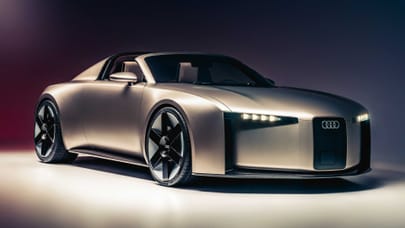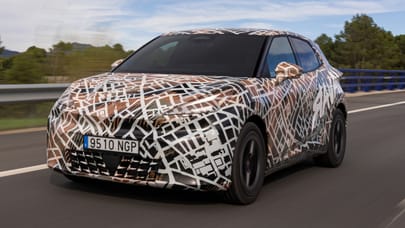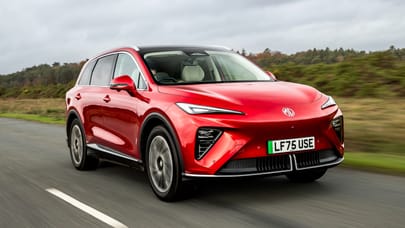
Do electric car batteries need replacing? Is it expensive?
Electric vehicle batteries shouldn’t need replacing, but what’s the situation if they do? TG answers your burning battery queries
Just like a fuel tank in your regular car, an electric vehicle’s car battery likely won't need replacing for the life of the vehicle – provided it doesn’t cop any damage. But we’ll come onto that.
Electric car batteries are the most expensive component. If you’re considering a switch to an electric car, or even a plug-in hybrid with some electric components, it's prudent to want to know how much it'll set you back to repair and maintain.
You say the battery should last the life of the car. How’s that?
Yeah, surprisingly – despite initial concerns that perpetually charging and recharging the battery would have the same effect as recharging a mobile phone i.e. degradation over time — manufacturers have found that batteries last longer than first expected (with the exception of some early Nissan Leaf ones).
Car makers currently reckon that their batteries will last anything from 10 to 20 years. Thus, manufacturers including Nissan and Tesla offer warranties of either eight years or 100,000 miles.
Why don’t manufacturers go the whole hog and offer warranties for the life of the battery?
Well, as mentioned, the batteries are very expensive and their durability is also determined by how much abuse they get.
Define ‘abuse’.
Not treating your battery the right way basically boils down to perpetually charging on rapid chargers. It leads to degradation of the elements in the batteries over time — and means there isn’t as much chemical activity going on inside the battery.
That’s kind of what happens with our mobile phones that sit on charge overnight and constantly slog from zero to full.
Depending on whose figures you reference, 80 to 90 per cent of EV owners charge at home. While this will most likely be a decision based on cost — it’s cheaper to charge at home — domestic chargers charge more slowly. This slower charge is good for batteries, since it protects the elements.
Domestic chargers can only go up to 22kW (though very few do — 22kW delivery relies on three-phase supply. Think farms and other places where there’s a possible commercial element to the residence). Most offer a power delivery of 7kW maximum. That means a 77kWh battery needs about 10 hours on that charger to go from zero to full (more on that, too, below).
Fast and ultra-fast (aka rapid) chargers can deliver power up to 350kW, though more commonly 150kW. That means the same battery charges in a lot less time, although not half the time.
Top Gear
Newsletter
Thank you for subscribing to our newsletter. Look out for your regular round-up of news, reviews and offers in your inbox.
Get all the latest news, reviews and exclusives, direct to your inbox.
Why not half the time?
Because battery charging is done on a curve; one that starts slow, gains speed, hits the sweet spot, plateaus and then drops off considerably. It’s all to do with state of charge, known as SoC, in nerdier EV circles.
The SoC is the percentage of your battery’s capacity. EV drivers are encouraged to charge between 10 per cent and 80 per cent, not persistently go from zero to full.
Is this to avoid range anxiety?
Actually, no. This is to avoid waiting longer on a charge point. It goes without saying that it’s easier to get something topped up if there’s already something there to begin with. Starting from scratch is always a slower process.
So if I constantly use fast chargers, I’ll need to replace my battery.
Maybe…actually, probably. And you’ll also spend a chunk of money, too.
How much does it cost to replace a battery in an electric car?
Lots. If you need to replace your battery, you’ll have to put your hand in your pocket for as much as £15,000. Chances are, you’d end up claiming on your insurance and even then, your insurer might go as far to write the car off.
Seems a bit of a waste of metal.
Indeed. However, not only can EV batteries be given a second life, as battery technology progresses it looks like everything will get more repairable, more replaceable and cheaper.
Nio, an electric vehicle manufacturer in China, is making swappable battery systems. Previously showcased by Tesla, the system really suits small electric bikes and flat dwellers, who may not have access to residential EV charging points. The car maker thinks for some drivers, switching the battery pack out in minutes will be preferable to waiting for an in-built system to charge.
Which system do you think you'd prefer?
Trending this week
- Long Term Review
Life with a 500bhp BMW 550e: do you really need an M5?








